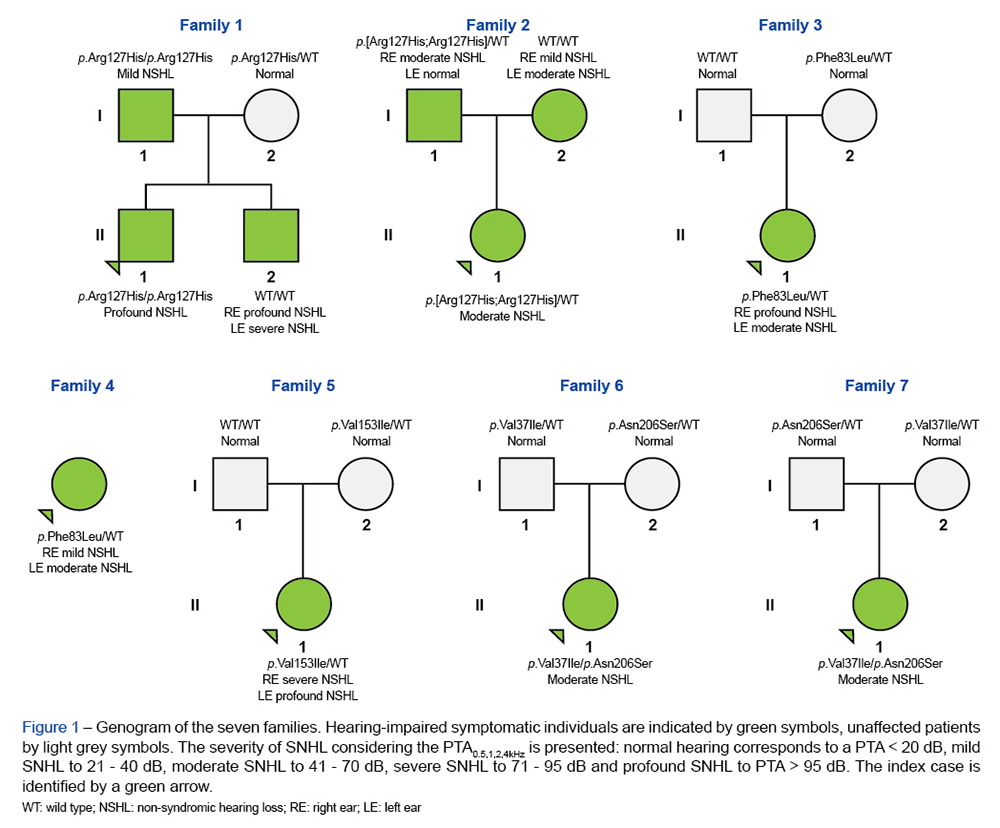SOCIAL MEDIA
Portuguese Medical Association's Scientific Journal

Introduction: Sequence variants in the GJB2 gene account for up to 50% of cases of non-syndromic sensorineural hearing loss in the Caucasian population. In this study, we report the frequency of the less common variants of the GJB2 gene in a Portuguese sample and compare these frequencies with those of a group of hearing-impaired patients.
Material and Methods: In order to select the less common GJB2 variants, 147 hearing-impaired patients followed in Centro Hospitalar Universitário de São João were evaluated. Afterwards, the presence of those variants was tested in 360 individuals from Generation 21.
Results: The patient assessment enabled the selection of 11 GJB2 variants. Of those, 10 were investigated in Generation 21 participants, with only four being detected, in heterozygosity: p.Phe83Leu, p.Arg127His, p.Val153Ile and p.Asn206Ser, with the allelic frequencies (95% confidence interval) of 0.14% (0.01% - 0.87%), 0.28% (0.01% - 1.08%), 0.97% (0.43% - 2.04%) and 0.14% (0.01% - 0.88%), respectively. Two variants, p.Val37Ile and p.Val95Met, were more frequent in the patients’ group with statistical significance.
Discussion: Our results allow for the p.Arg127His and p.Val153Ile variants to comply with polymorphism criteria and support the pathogenicity of p.Val37Ile and p.Val95Met variants. Moreover, two cases of moderate hearing loss were explained by the p.Val37Ile/p.
Asn206Ser genotype, substantiating both the pathogenicity of such variants and the hypothesis that compound heterozygosity with p.Ans206Ser is associated with mild-moderate genotypes.
Conclusion: Understanding the role of the variants is essential in order to provide genetic counselling to patients and their families. We explored a set of uncommon GJB2 variants that comprised 12% of the hearing-impaired patients in this study, supporting the relevance of their description.